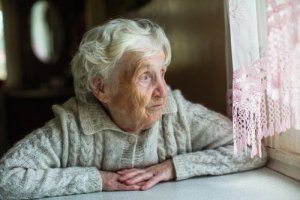Recommendations for the Senior Citizens During Quarantine


Written and verified by the doctor Leonardo Biolatto
The COVID-19 pandemic continues to advance and the elderly represent a group that’s at risk for suffering the illness’s worst symptoms, which can sometimes turn fatal. Therefore, individuals in this age group are a priority when it comes to care. In the following article, we’ll go into greater detail regarding recommendations for senior citizens during the coronavirus quarantine.
The goal of this quarantine is to flatten the curve of contagion, according to the indications of epidemiologists. In other words, reducing the rate at which the virus spreads over time. This way, it gives an advantage to our health system to respond properly to this crisis without becoming overwhelmed.
The current coronavirus outbreak began in the city of Wuhan, China, in December 2019. In China, it came to infect more than 80,000 people. At the same time, it has expanded around the globe to more than 200,000 people and has caused, as we write, nearly 9000 deaths.
The fatality rate of COVID-19 is approximately 3 to 4%, meaning approximately 4 out of every 100 infected individuals die. However, when we separate the data, the true risk groups appear. Persons that are over the age of 65 are at a greater risk of dying from coronavirus complications. What’s more, in those who are older than 80, the mortality rate is approximately 15%.
What’s the purpose of quarantine?
The purpose of isolation, which is recommended for all citizens, including the elderly, is to reduce the spread of the virus. Perhaps the final number of infected individuals will be the same as it would be without these measures. However, quarantine gives time to health systems to respond.
What’s more, a principal objective of isolation measures is to protect the most vulnerable groups. Data indicates that the groups that are most likely to suffer serious consequences of coronavirus are the following:
- Individuals over the age of 65
- Persons who suffer from chronic illnesses
- Those with a weakened autoimmune system.
Quarantine is more of a social responsibility than a legal imposition from the government, but many governments have made it into law. Even if you’re young and don’t have any of the above-mentioned health problems, it’s still important to stay at home. Why? To keep the virus from reaching your friends, neighbors, family members, and acquaintances that are at greater risk.

Keep reading: Coronavirus: Recommendations for Cleaning and Disinfecting Your Home
What should senior citizens do during quarantine?
The measures indicated for senior citizens during quarantine are similar to those that the general population should follow. However, the elderly should take them to a greater degree. Social isolation increases the possibilities of staying away from and avoiding contact with COVID-19.
The elderly should stay at home. What’s more, they should avoid going out on the street and, especially, going to enclosed places. As much as possible, they should stay away from the grocery store and have a friend or family member do their shopping for them.
Handwashing should be frequent, using soap and running water for at least 20 seconds. When at home, using hand sanitizer isn’t necessary. Receiving guests is by no means recommended. However, if people do come over, they should wash their hands upon arriving and leaving. They should also wash their hands during their visit if they handle objects.
As we mentioned in the paragraph above, visits should be kept to an absolute minimum. Remember that children can be carriers and spread coronavirus even without displaying symptoms. Therefore, it’s important for grandparents and grandchildren to stay away from each other for the time being.
The issue with medications is particular. In countries where quarantine is total, the elderly may have to go without the medication they require. This may be for at least a month, considering that isolation measures may intensify. If a friend, family member, or neighbor can go to the pharmacy for them, this is ideal.

Read more: Why Is Quarantine Necessary in Cases such as Coronavirus?
What can others do for senior citizens during quarantine?
Basically, the rest of the population should help the elderly to comply with the coronavirus quarantine. One way to do this is by doing their grocery shopping and getting their medications for them. That way, we take away the need for them to leave their homes.
If you have family members that are over the age of 65, encourage them to stay physically and mentally active during this quarantine. There are exercises they can do at home and mental games that will help them stay in shape.
If you detect that a senior citizen has compatible symptoms–because he or she mentions it or because you notice–then you need to contact health services. Remember that fever, coughing, and fatigue are the initial triad of coronavirus symptoms.
This is a pandemic that requires commitment from every citizen. Older adults and other risk groups are those that suffer the most, and therefore require all of our care.
All cited sources were thoroughly reviewed by our team to ensure their quality, reliability, currency, and validity. The bibliography of this article was considered reliable and of academic or scientific accuracy.
- Novel, Coronavirus Pneumonia Emergency Response Epidemiology. “The epidemiological characteristics of an outbreak of 2019 novel coronavirus diseases (COVID-19) in China.” Zhonghua liu xing bing xue za zhi= Zhonghua liuxingbingxue zazhi 41.2 (2020): 145.
- Santo Domingo, D. N. “Protocolo para el diagnostico y tratamiento del coronavirus (COVID-19).” (2020).
- Ríos-González, Carlos Miguel. “Implicancias del COVID-19, una nueva enfermedad producida por Coronavirus.” Medicina Clínica y Social 3.3 (2019): 71-72.
- Lloyd-Sherlock, Peter, et al. “Bearing the brunt of covid-19: older people in low and middle income countries.” (2020).
- Wang, Hanping, and Li Zhang. “Risk of COVID-19 for patients with cancer.” The Lancet Oncology (2020).
- Wang, Tianbing, et al. “Comorbidities and multi-organ injuries in the treatment of COVID-19.” The Lancet (2020).
This text is provided for informational purposes only and does not replace consultation with a professional. If in doubt, consult your specialist.








